The latest: Digital Agency takes off amid 'digital defeat'
Japan's new Digital Agency was launched on September 1st. Its aim is to achieve a better society through the adoption of technology. The agency, with a staff of about 600, is headed by Prime Minister Suga Yoshihide, with Hirai Takuya assisting him as Digital Transformation Minister.
It's hoped that the agency can make administrative services more convenient for citizens. For example, in a digitalized Japan, residents may not even have to go to their local office when moving to a new home. Currently, people who relocate from one municipality to another must go to two local offices and fill out two forms in person: the one in their old location, and the one in their new location. They must also notify utility companies, such as electric, gas and water providers, for both their old and new homes. However, in a digitalized society, one might merely have to register their move on a government website, which could also automatically notify the utility companies.
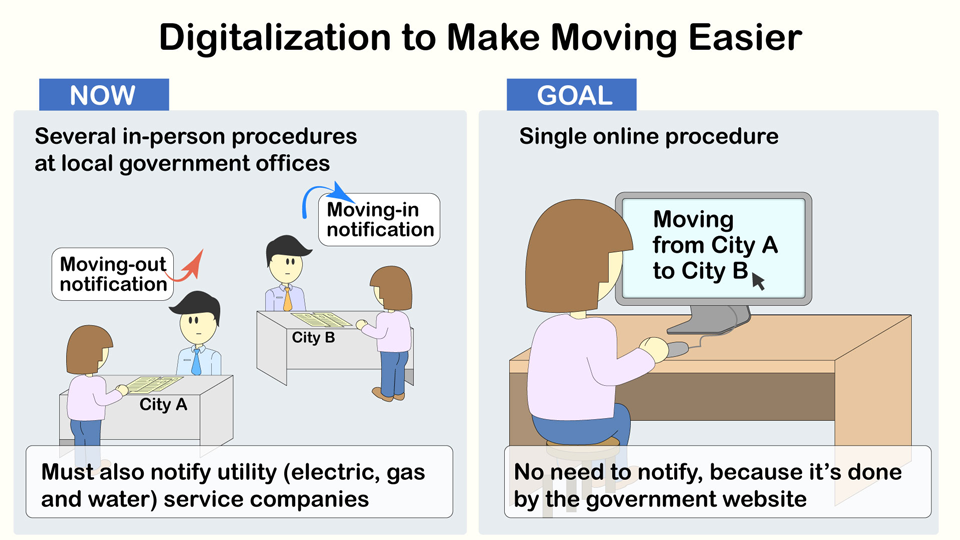
Establishing the Digital Agency was a key campaign promise of Prime Minister Suga in his bid for the job. Thanks to an expedited passage by parliament of a set of laws to establish the agency, it took just a year for the office to be launched from the time the Suga Cabinet was inaugurated in September 2020.
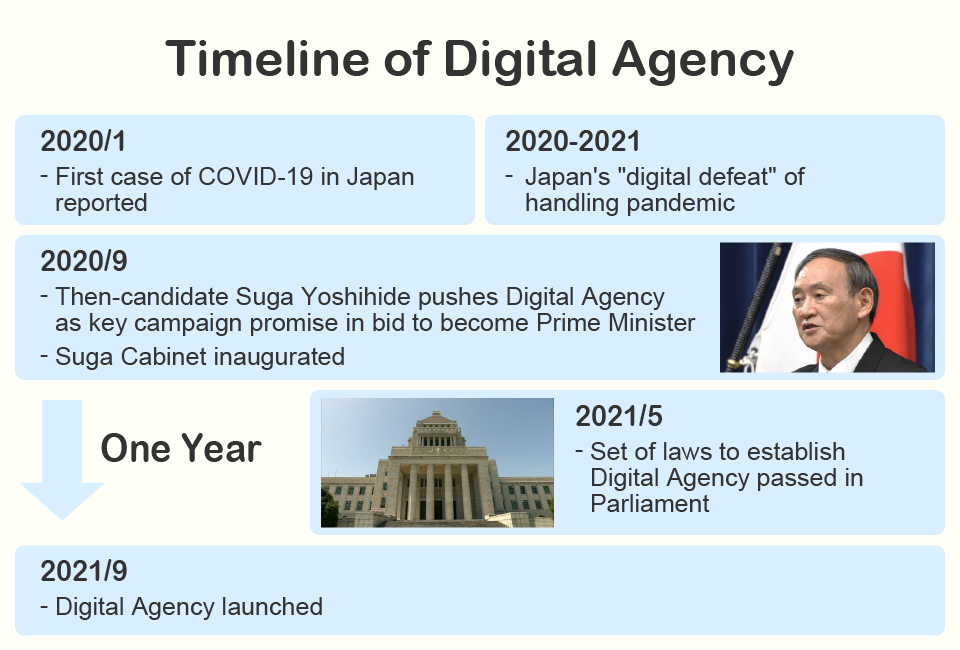
Japan has pushed for digitalization numerous times. Its first initiative was the "e-Japan strategy" two decades ago. Thanks to government-led efforts, Japan has one of the best-maintained internet infrastructures in the world. The country's connection speeds are consistently faster than most of its peers, and its residents have a wide range of digital services at their disposal. In the "E-Government Survey 2020" released by the United Nations, Japan ranks 14th among the 193 member nations. Of the 38 OECD member states, it is at 13th, and third among the G7 nations.
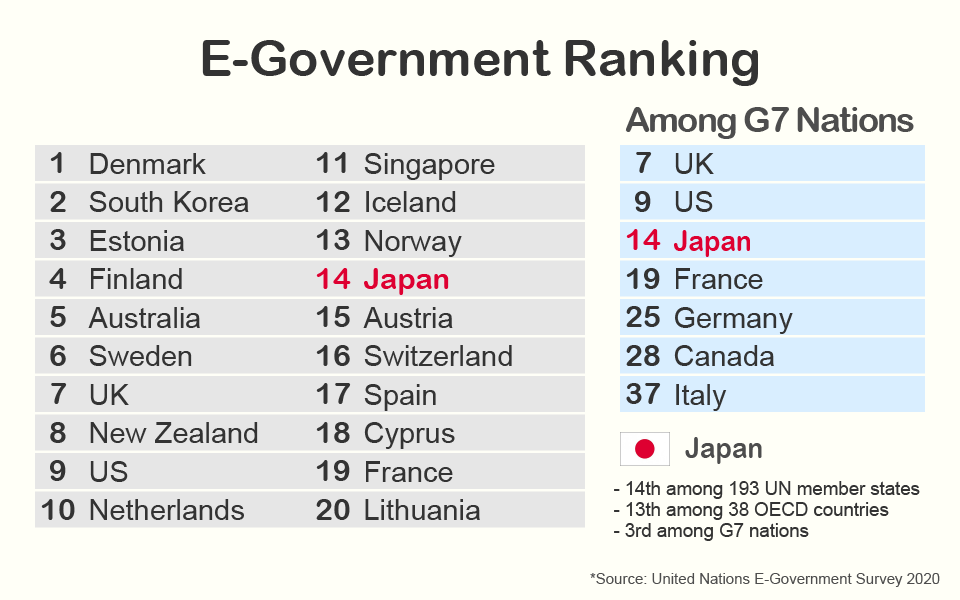
Even so, the country's handling of bureaucratic affairs during the coronavirus pandemic was dismal compared to other countries – to the point that Digital Transformation Minister Hirai described it a "digital defeat." As COVID-19 raged around the world, many countries decided to give people cash handouts. Japan did the same, but the money arrived much later despite, or maybe even because of, online applications. The applications made on a website run by the central government couldn't be verified on the servers of local governments, so officials resorted to paper and manual labor as they scrambled to check application forms for individuals. In the meantime, online applications for businesses were temporarily paused due to system errors.
In another example, "COCOA," the COVID-19 contact tracing app advertised by the government, failed to notify users when they encountered infected people. The problem, which was caused by a computer system error, went unnoticed for four months.
Furthermore, inoculation coupons for coronavirus vaccines were sent out by postal mail. Residents in some areas complained of having to wait some time to receive their envelopes.
To top it all off, daily infection tallies sometimes came in incorrect due to faulty or delayed reporting of cases. At the start of the pandemic, the reporting was done by doctors and officials filling in and faxing paper forms. A computer-based method was later introduced, but it wasn't without its faults, either, and there were still misreported cases.
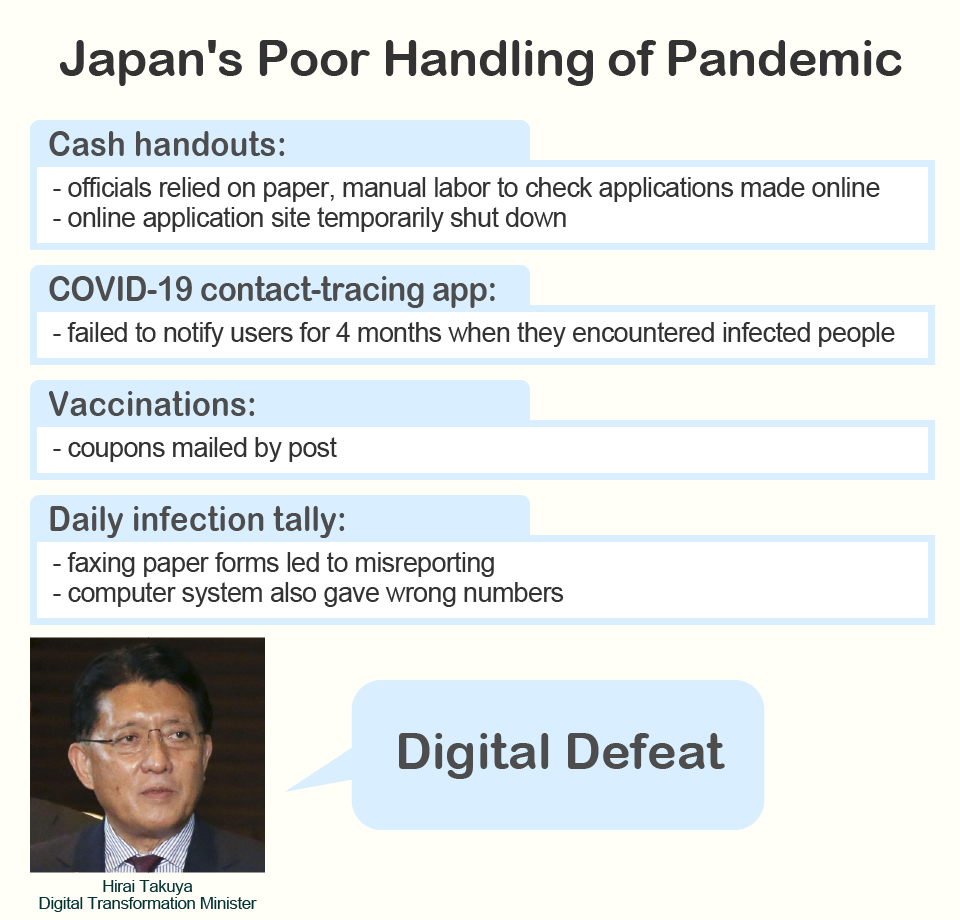
The plan: Addressing Japan's 'fundamental' problems
Why has Japan, with a seemingly impressive IT infrastructure, experienced such a crushing "digital defeat"? Ueyama Shinichi, Professor of Public Management at Keio University, says, "Japan's weakness is more fundamental than whether it's digitalized," alluding to a string of issues that the agency plans to tackle.
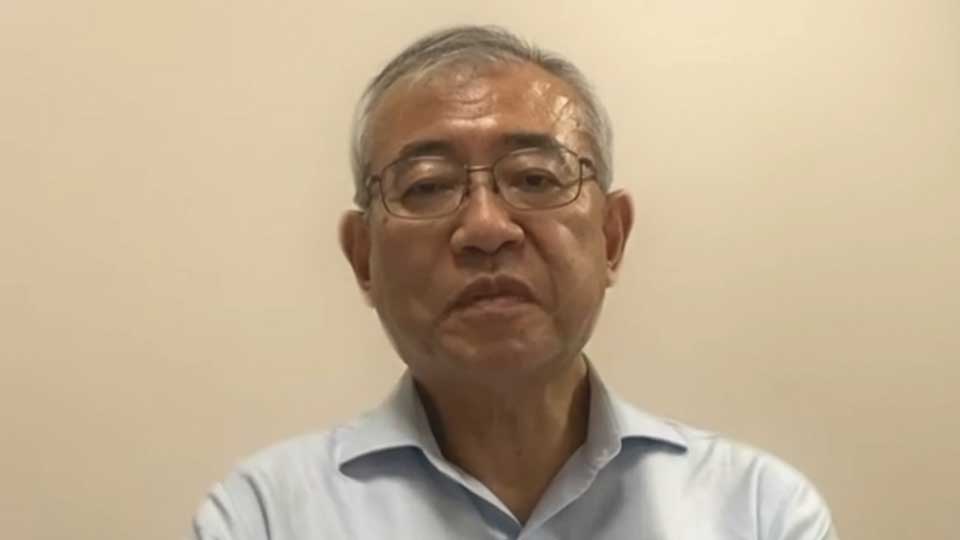
Issue 1: Digital disconnect
One problem is a digital disconnect among Japan's various authorities. The government and local municipalities all have their own databases. The systems are advanced, but each has its own format, making it impossible for their data to be shared.
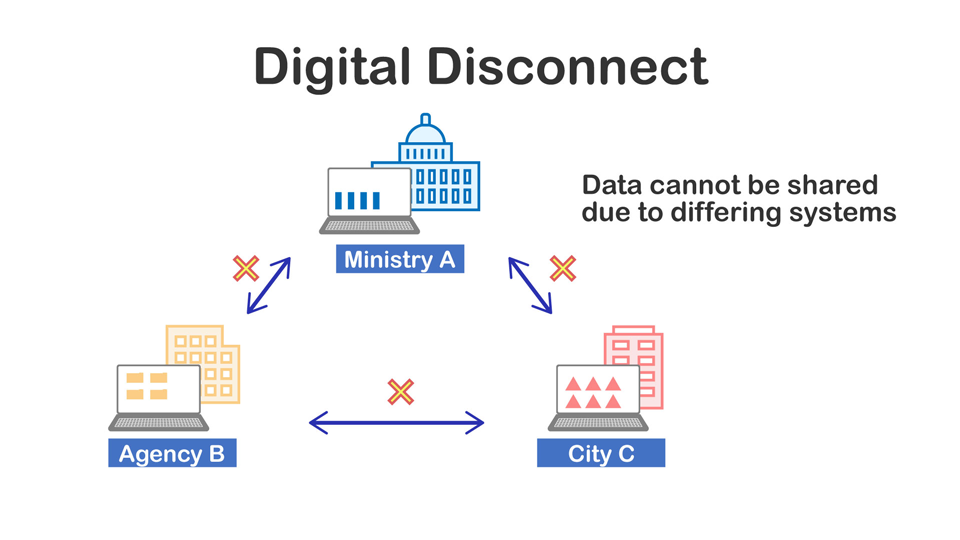
According to Ueyama, this is one of the main reasons for the late arrival of cash handouts. "Even if officials want to share data, they can't do it digitally because their systems are not compatible with one another. They sometimes cope by printing out the data from one computer system and typing it into another."
This is basically what happened at some local offices when online applications for cash handouts were made. The application portal provided by the government could not be connected to systems at local governments, so local officials across Japan ended up having to print out applications made online and check to see whether the information matched that in their own databases.
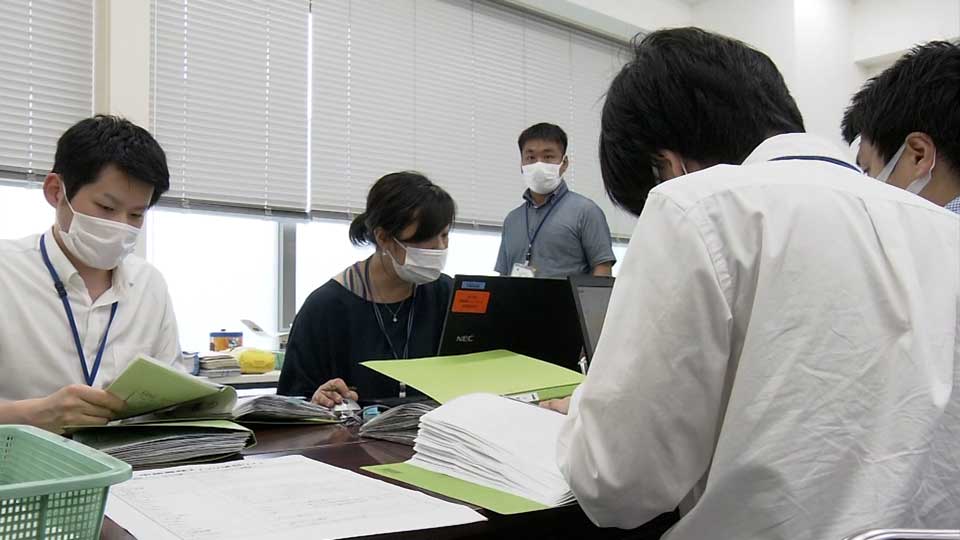
The Digital Agency plans to address the digital disconnect by making comprehensive platforms for all administrative offices. Ueyama is impressed by this plan. "If there's an inter-connected system for all branches of government, running costs will go down... and for citizens, various procedures will become simpler."
However, many Japanese question whether comprehensive platforms to cover numerous ministries, agencies and local governments can be achieved, given the country's long-standing culture of bureaucratic sectionalism. Japan's administrative offices are infamous for rigidly sticking to their field of expertise; sometimes, several Japanese ministers show up at international meetings when other countries send only one representative.
Maruyama Yuhei, Executive Chief Analyst at Dai-ichi Life Research Institute and an expert on technology and innovation, is optimistic that the new agency can make the comprehensive system happen. "The Digital Agency has been given strong authority, for example the 'recommendation right,' so I believe it can enforce reforms," he says.

The "recommendation right" basically allows a government branch to advise other ministries and agencies on actions. It is usually given to organizations that address problems spanning multiple government branches. All advisory rights have a basis law, and once activated, they have a huge impact on other ministries and agencies.
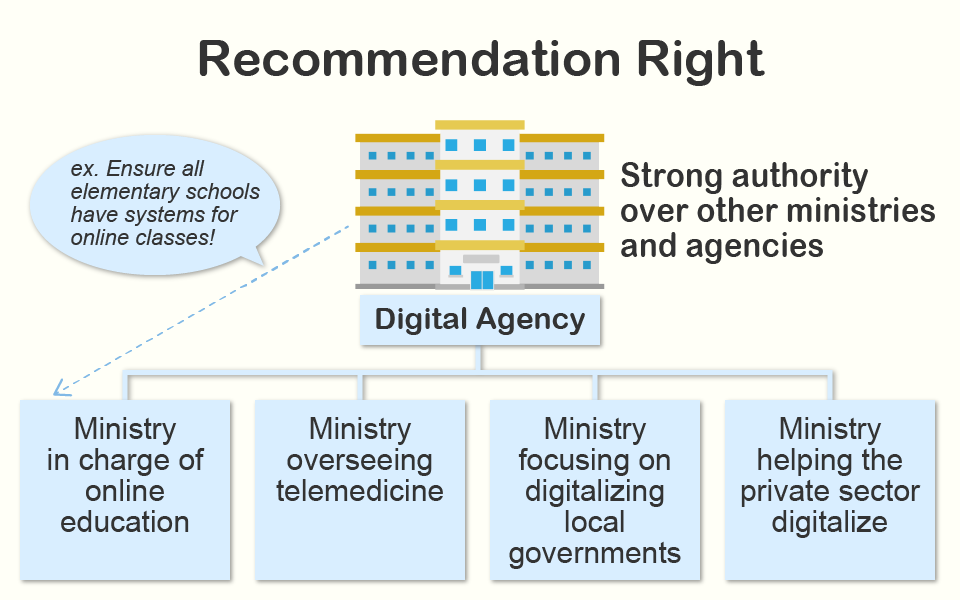
Issue 2: Lack of IT personnel
Another problem the Digital Agency must take on is a lack of digital expertise within the government. Maruyama blames this shortcoming for the malfunction in the COVID-19 contact tracing app. "I believe a shortage of IT personnel at government authorities led to the app's demise," he says. Sure enough, government officials admitted they outsourced the app's development and had little idea on how to operate it.
The Digital Agency says it plans to address this issue by proactively hiring IT personnel. The government has made a new digital job classification in its recruitment standards.
Maruyama calls that a good first step but says more needs to be done before the bureaucracy can be considered tech-savvy. "The Digital Agency has secured IT personnel by making a system in which it can hire from the private sector. However, in the longer term, authorities will need to educate employees themselves. The public sector needs people with IT expertise who can draw the big picture."
Both Maruyama and Ueyama agree that Japan as a country needs more IT personnel, so offering IT education to the young is essential for its future. Ueyama adds that especially education on cybersecurity needs to be stepped up.
"Public sector work includes areas like defense and policing and so it needs to be protected more strictly than the private sector. Making sure Japan has people who can handle cybersecurity is of the utmost importance. However, most young engineers aspire to become app developers or engineers. Japan needs more schools specializing in cybersecurity. This is something that should be done as a national strategy by the Digital Agency."
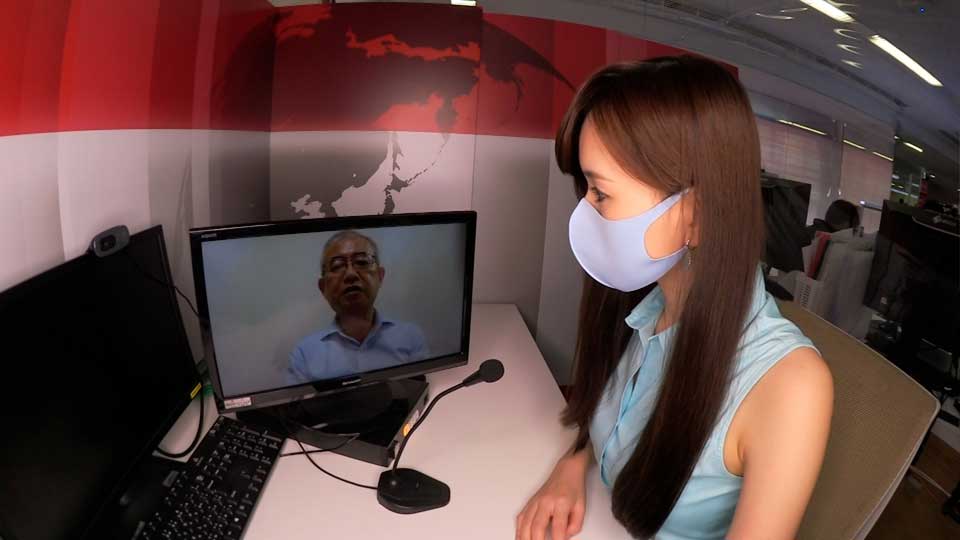
Issue 3: Archaic business practices
A problem that may surprise a lot of people outside Japan is the country's archaic business practices. Paper forms, faxes and postal mail are still common. One reason for the misreporting of the number of COVID-positive patients was the use of paper forms and faxes. The moving process, mentioned above, that requires residents to go to two local offices and fill in two forms, is just one of many examples of this issue.
The Digital Agency has a plan for this, too: digitalizing public services using a national ID system. "My Number Cards," which bear a 12-digit number, are allocated to every resident of Japan. The number remains the same even after marriage, relocation or a change of employer, so it serves to identify an individual throughout that person's life. The new agency plans to utilize the card so that individuals can be identified digitally and administrative services can be received online.
However, the cards' low issuance rate is casting doubt on that plan. According to the latest statistics released in August, only 36% of the total population has been issued one. That's a far cry from the government goal of everyone.
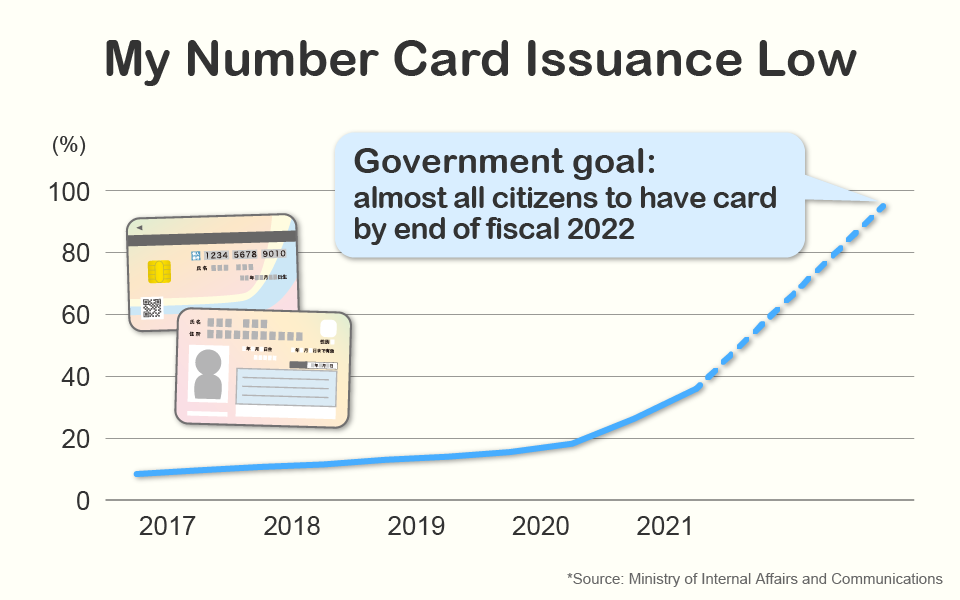
Maruyama, though, is optimistic that if the services citizens can receive become convenient, everyone will get the card. "Presently, the 'My Number Card' isn't that easy to use," he says. "What you can do with it can differ depending on where you live, since many of Japan's local governments have their own laws and ordinances on privacy. The key will be to integrate all the services to make them easier for everyone to understand. Once people realize the convenience the cards offer, they'll apply to get one. It's like that folktale 'The North Wind and the Sun.' The key to persuasion is not to tell someone to do something but to set the conditions so that they'll want to do it themselves."
Off to a good start
The number of issues the Digital Agency has to tackle, such as the digital disconnect among government offices, officials' lack of digital expertise and archaic business practices, pose formidable challenges. However, as a blueprint, the agency seems to be off to a good start, although if the government wants to truly be an IT-effective, it needs to work on cultivating the people that can make it happen.
Looking ahead: Tailwind of 'digital defeat'
Prime Minister Suga said at the Digital Agency's unveiling that he hopes the new branch will "not just reform bureaucracy, but the whole country." Ishikura Yoko, who is in charge of the agency's day-to-day affairs, said, "Digital technology will be the driving force behind building a new society."
Maruyama believes the time is right, as Japan's "digital defeat" may have given the organization the push it needed. "There is a shared sense of crisis over Japan's dismal digital handling of the coronavirus pandemic," he said. "COVID-19 has made Japan realize the importance of digitalization. This is serving as a tailwind of sorts for the Digital Agency."
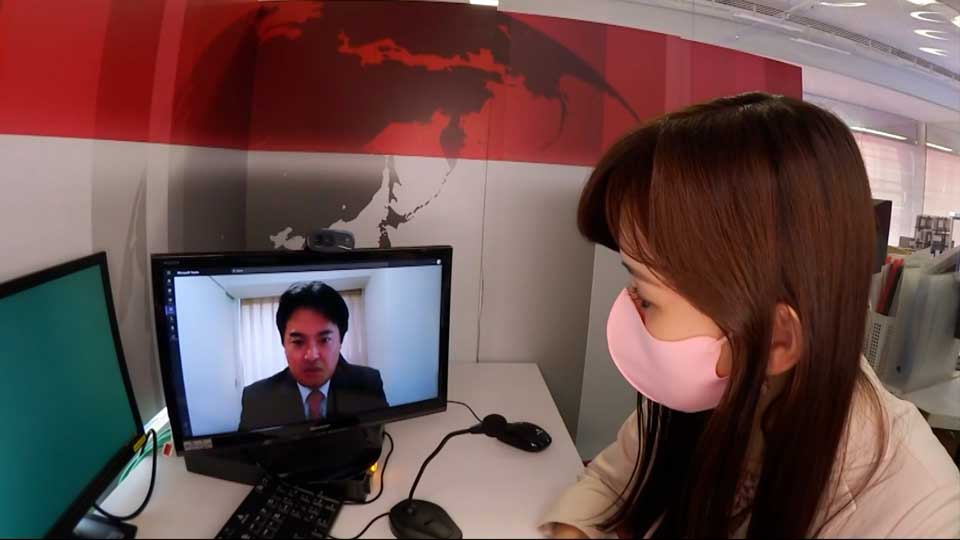
Even if all goes well in digitalizing Japan, the Digital Agency will still have much work ahead of it. Ueyama cautions that a digitalized society could leave certain people behind, a problem requiring further measures. "The elderly or people with disabilities are some of the most avid users of administrative services, but they tend not to be as tech-savvy as other demographics."
Whether Japan can emerge successfully from its "digital defeat" may determine where the world's third-largest economy will stand in the coming decades. The Digital Agency needs to get maximum momentum from the tailwind and enforce reforms effectively – all the while being careful to incorporate everybody in its plans for a truly digitalized society.

